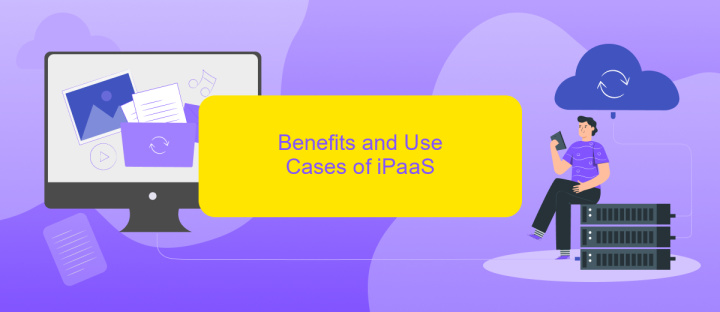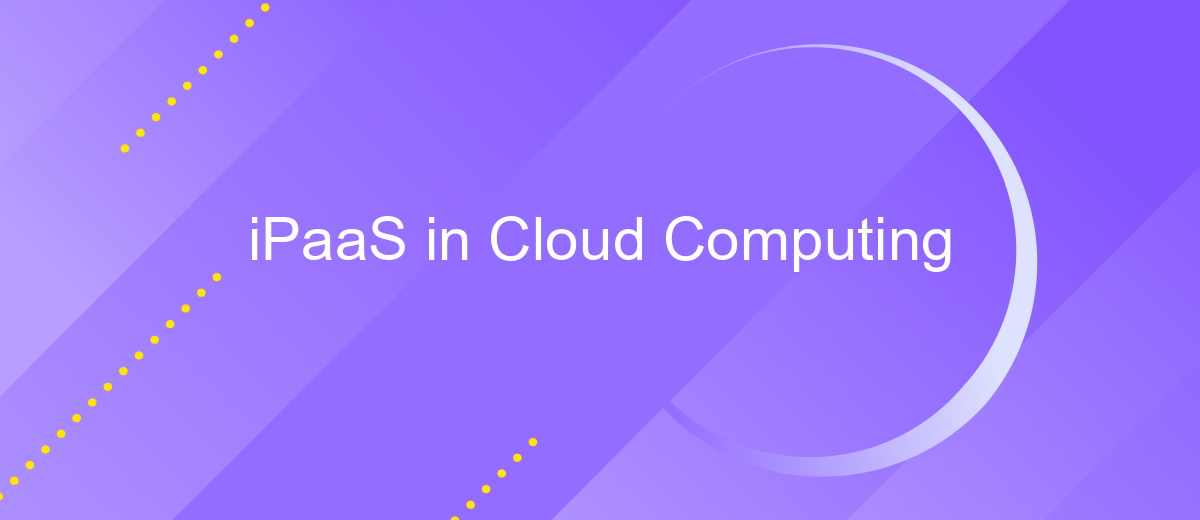iPaaS in Cloud Computing
Integration Platform as a Service (iPaaS) is revolutionizing cloud computing by enabling seamless integration of various applications and data sources. This cloud-based solution simplifies complex integration processes, allowing businesses to connect disparate systems effortlessly. iPaaS not only enhances operational efficiency but also drives innovation by providing scalable and flexible integration capabilities, making it an indispensable tool in the modern digital landscape.
Introduction
In today's fast-paced digital landscape, businesses are increasingly leveraging cloud computing to enhance their operations and achieve greater efficiency. One of the key components of this transformation is Integration Platform as a Service (iPaaS), which simplifies the process of integrating various applications and services within a cloud environment.
- Streamlined integration of diverse applications
- Enhanced data synchronization and accessibility
- Scalability to meet growing business demands
iPaaS solutions like ApiX-Drive play a crucial role in this ecosystem by offering a user-friendly interface for setting up integrations without the need for extensive coding knowledge. By automating workflows and ensuring seamless data flow between disparate systems, businesses can focus on their core activities while enjoying the benefits of a connected cloud infrastructure. As a result, iPaaS is becoming an indispensable tool for organizations aiming to stay competitive in the digital age.
iPaaS Architecture and Components

iPaaS (Integration Platform as a Service) architecture is designed to facilitate seamless integration of various applications and data sources within a cloud environment. The core components of iPaaS include connectors, data integration tools, and workflow automation engines. Connectors enable communication between disparate systems, while data integration tools ensure data consistency and transformation. The workflow automation engine orchestrates processes and manages data flows, providing a cohesive integration experience.
A critical aspect of iPaaS is its ability to simplify complex integrations through user-friendly interfaces and pre-built templates. For instance, services like ApiX-Drive offer a wide range of connectors and automation options, making it easier for businesses to integrate different applications without extensive coding. ApiX-Drive supports real-time data synchronization and provides robust monitoring tools to ensure the reliability and efficiency of integrations. This comprehensive approach helps organizations streamline operations and enhance productivity by leveraging the full potential of their cloud-based systems.
Benefits and Use Cases of iPaaS

iPaaS (Integration Platform as a Service) offers numerous benefits for businesses looking to streamline their operations and enhance their cloud computing capabilities. By providing a centralized platform for integrating various applications and services, iPaaS simplifies data management and improves efficiency.
- Scalability: iPaaS solutions can easily scale to accommodate growing data volumes and increasing numbers of applications.
- Cost Efficiency: By automating integration tasks, iPaaS reduces the need for manual coding and maintenance, saving both time and money.
- Improved Data Accuracy: Real-time data synchronization ensures that all systems are up-to-date, minimizing errors and discrepancies.
- Enhanced Security: iPaaS platforms often include robust security features to protect sensitive data during transmission and storage.
- Flexibility: With iPaaS, businesses can easily integrate on-premises, cloud-based, and hybrid systems.
Common use cases for iPaaS include automating workflows between cloud services, synchronizing customer data across CRM and marketing platforms, and integrating e-commerce systems with inventory management tools. For example, ApiX-Drive is a service that facilitates seamless integration between various applications, enabling businesses to automate data flow and improve operational efficiency without the need for extensive technical expertise.
Challenges and Considerations

Implementing an iPaaS (Integration Platform as a Service) in cloud computing comes with its own set of challenges and considerations. One significant challenge is ensuring data security and compliance, as integrating multiple systems can expose sensitive information to potential breaches. Additionally, managing and maintaining the integration flows can become complex, especially when dealing with a large number of disparate systems.
Another consideration is the scalability of the chosen iPaaS solution. As businesses grow, their integration needs will also expand, necessitating a platform that can scale accordingly. Furthermore, the cost of implementing and maintaining an iPaaS solution can be substantial, requiring careful budget planning and cost-benefit analysis.
- Data security and compliance
- Integration complexity
- Scalability of the iPaaS solution
- Cost considerations
Services like ApiX-Drive can help mitigate some of these challenges by offering user-friendly interfaces and automated workflows that simplify the integration process. By leveraging such tools, businesses can ensure smoother integration, better data management, and overall improved efficiency in their cloud computing environments.
Future of iPaaS in Cloud Computing
The future of iPaaS in cloud computing is poised for remarkable growth and innovation. As businesses increasingly adopt multi-cloud and hybrid cloud strategies, the need for seamless integration across diverse platforms becomes paramount. iPaaS solutions will continue to evolve, offering more sophisticated tools for data integration, process automation, and real-time analytics. This will empower organizations to streamline their operations, reduce costs, and enhance agility in a rapidly changing digital landscape.
One notable trend is the rise of specialized iPaaS providers like ApiX-Drive, which focus on simplifying the integration process. These services enable businesses to connect various applications and automate workflows without extensive technical expertise. As more companies recognize the value of such tools, we can expect a surge in demand for user-friendly, scalable iPaaS solutions. In the coming years, advancements in artificial intelligence and machine learning will further enhance iPaaS capabilities, making it an indispensable component of modern cloud ecosystems.
- Automate the work of an online store or landing
- Empower through integration
- Don't spend money on programmers and integrators
- Save time by automating routine tasks
FAQ
What is iPaaS in Cloud Computing?
How does iPaaS differ from traditional integration methods?
Can iPaaS be used for automating workflows?
What are the benefits of using iPaaS for businesses?
How user-friendly is iPaaS for non-technical users?
Routine tasks take a lot of time from employees? Do they burn out, do not have enough working day for the main duties and important things? Do you understand that the only way out of this situation in modern realities is automation? Try Apix-Drive for free and make sure that the online connector in 5 minutes of setting up integration will remove a significant part of the routine from your life and free up time for you and your employees.


